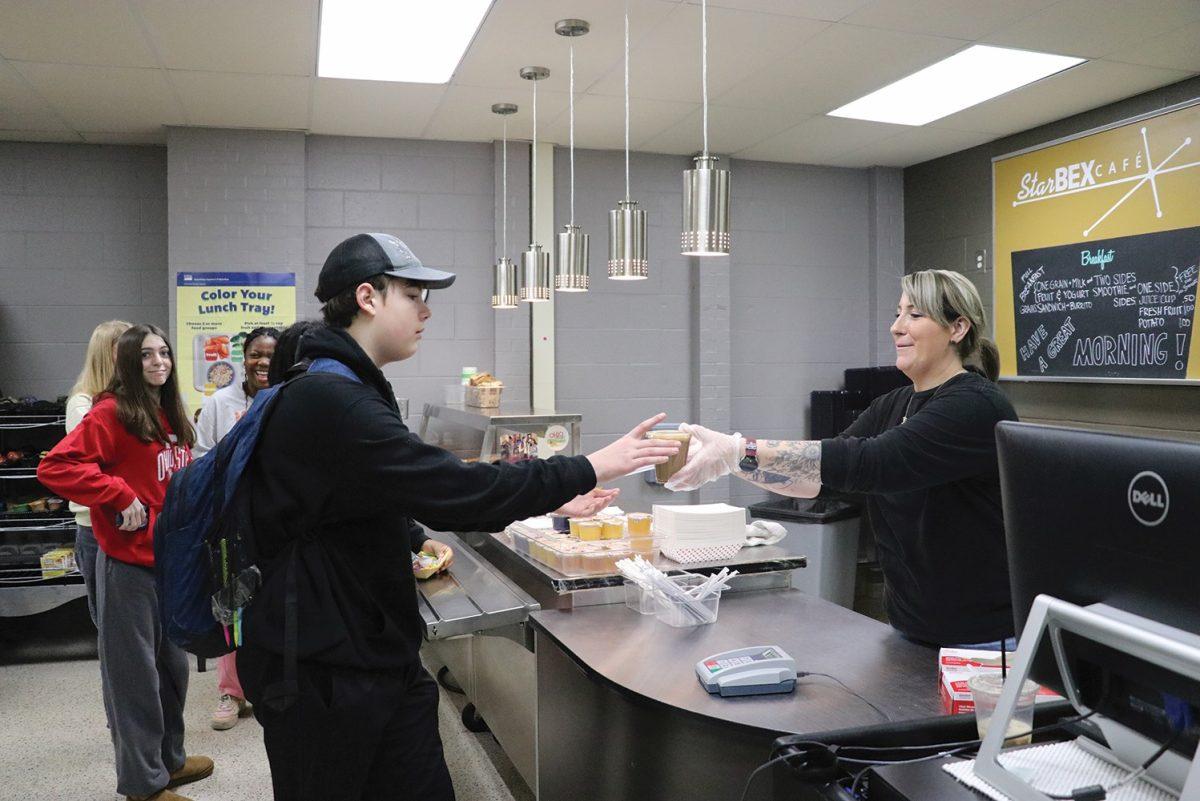Universal free breakfast, a program that provides every student in the district access to a free breakfast at the beginning of each school day, will continue for the remainder of the year according to a resolution passed by the Board of Education Oct. 11.
The program will be paid for by the district’s general fund, the Board Resolution indicates.
The Board allocated up to $100,000 to provide over 66,000 breakfast meals.
The free breakfast options include two ounces of grain, two servings of fruit, and a dairy product, Food Service Director Julianna Carvi explained. In order for their breakfast to be free, the student must choose three of the four options, she said.
Director of Facilities and Operations Harley Williams explained the district is continuing this program because they believe it is crucial for every student to have a healthy meal to start the day.
“This isn’t really a school issue, this is a community issue,” Williams said.
According to the Board resolution, the free breakfast program was originally funded by the federal government during the COVID-19 pandemic. Once the federal program ended, certain students were eligible for district-funded free breakfast depending on their family’s income, the Board resolution indicates.
Williams added after federal funding ended, there were many families who no longer had access to free breakfast because their incomes were higher than the threshold, but they still needed help providing meals.
The decision to continue the free breakfast program was discussed by many groups within the Bexley community including the Developmental Assets Resource Network, Williams explained.
He added the groups decided they would not look for outside funding, but instead suggest the use of district funds to pay for the universal breakfast program because this was something that the district cared deeply about.
“If it’s something that we valued, we would pay for it out of the district fund,” he said. “Eventually it [became] just kind of a Bexley city issue.”
COVID-19 was the main reason the program began, and without universal free breakfast getting kick-started by the pandemic, the school would’ve never known something like this was possible, Carvi said.
“It is absolutely because of COVID-19 and the idea that we could do it,” she said. “We nationally proved that it can be done.”
According to the Board resolution, the universal free breakfast program was initially tested at the beginning of this school year with a pilot program averaging 330 meals per day, a demand that has only increased since.
“It’s gone way up,” Carvi said. “We have a lot of people participating.”
The Board resolution allows this program to continue for the rest of the 2023-2024 school year, but Williams said he doesn’t know if this program will return in future years.
“I think it will continue for now,” he explained. “I think the potential cost of this program could be very, very high, though.”
Williams added the longevity of this program will rely on how many students take part in it, as the more students who take advantage, the faster the money will dry up.
However, Williams said he believes this program is advantageous for students’ learning.
“If you come to school and you’re hungry, it’s hard to concentrate on learning,” he said.
Sophomore Solan Coutts said the effects of the free breakfast program are evident through how many people choose to purchase breakfast in the morning.
Coutts added having access to breakfast affects his performance during the day.
“I believe [breakfast] can help me get better grades, which can open up more things later in life,” Coutts explained.
Sophomore Anna Whisler agrees that having breakfast affects the rest of the day in a positive way.
“Breakfast is a good thing to have because it will fuel you for your day,” she said.
She added that having breakfast at school is a positive and important development.
“I think it’s good because it gives people the opportunity to eat breakfast at the school if they can’t get it at home,” Whisler said.

















